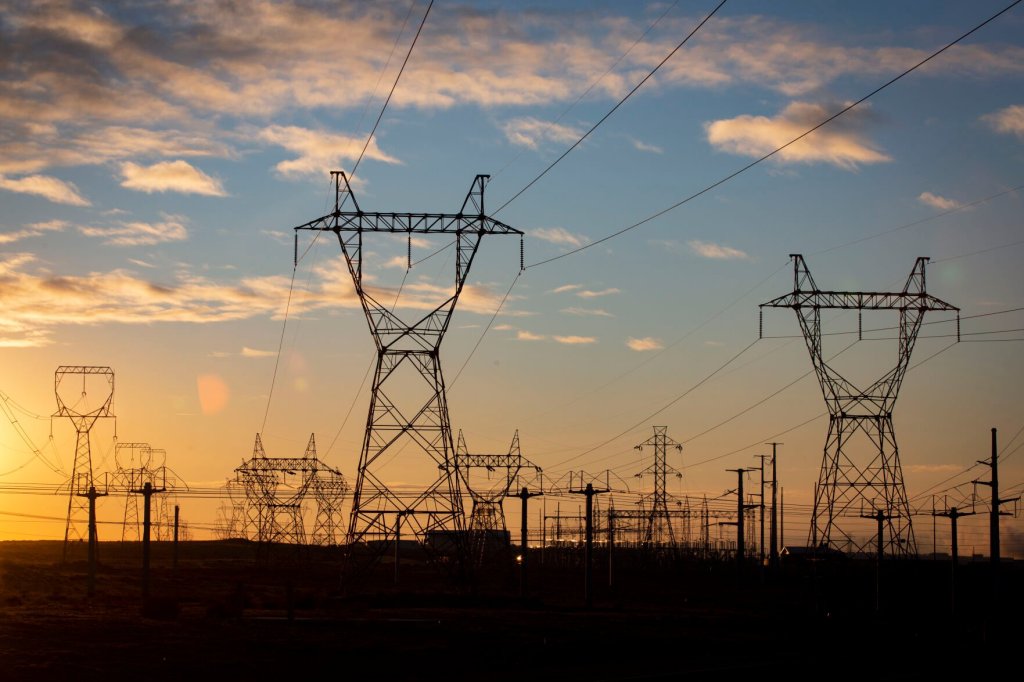Idaho Power files condemnation suit seeking easement across Baker County property for B2H power line
Published 10:08 am Tuesday, May 28, 2024

- The setting sun silhouettes transmission lines in Boardman in February 2022 near the planned future starting point of Idaho Power's proposed 300-mile Boardman to Hemingway transmission line, which is slated to cross through Baker County.
Idaho Power Company has filed a lawsuit against a Baker City couple seeking to acquire an easement through their property near Huntington that’s on the route of the Boardman to Hemingway power transmission line scheduled to begin construction this year.
Trending
The Boise company, represented by attorneys Tim J. Helfrich and Zach Olson of Yturri Rose LLP in Ontario, filed the suit May 20 against property owners Tel and Lacey Abbe of Baker City.
They own a 314-acre property just south of Interstate 84 between Huntington and Farewell Bend.
Idaho Power is seeking a 160-foot-wide easement, totaling about 17.5 acres, across the couple’s property for the power line and an access road, according to the lawsuit.
Trending
Tel Abbe declined to comment on the suit.
This is the second eminent domain complaint Idaho Power has filed against a Baker County landowner seeking an easement for the B2H project.
The first was filed in September 2023. The defendants are Scott and Kylie Gressley of Baker City.
Although the lawsuit is pending, Judge Matt Shirtcliff of Baker County Circuit Court on Feb. 28 gave Idaho Power permission to enter the Gressleys’ property, along Interstate 84 about 5 miles southeast of Baker City, to build the power line.
Shirtcliff ordered Idaho Power to pay the Gressleys $83,960 for the easement.
The company had offered $18,960.
The Gressleys had asked for $392,542.50, arguing that they should be compensated for the long-term loss of value for the property, which they use for cattle grazing.
Also known as condemnation, eminent domain is a legal process in which a judge or jury orders a property owner to sell land, or an easement, to make possible a particular project, and decides the price.
Eminent domain lawsuits can be filed by public agencies, such as a state department of transportation to acquire land for a highway or other project, or, as in this case, by a private firm.
The situation with the Abbes’ property is similar to that with the Gressleys’.
According to the May 20 lawsuit, Idaho Power tried to negotiate purchase of an easement across the Abbes’ land but were not successful.
The company offered $28,470 for the easement, according to the lawsuit.
In the Gressleys’ case, Idaho Power’s attorneys, after filing the initial lawsuit, also filed a motion seeking permission to enter the couple’s property while the suit was ongoing.
Shirtcliff granted that motion after hearing arguments from both sides on Feb. 12 and Feb. 16.
B2H history
The 293-mile-long line, first proposed in 2007, will run from near Hermiston to the Hemingway substation in Owyhee County, Idaho.
Oregon and Idaho state agencies have approved construction of the power line. Idaho Power and its partner, PacifiCorp, say the line is needed to handle growing demand for electricity that existing transmission lines can’t accommodate.
Although Idaho Power has overseen the project, PacifiCorp has a 55% ownership in the line, Idaho Power 45%.
Opponents, led by the Stop B2H Coalition, based in La Grande, dispute the companies’ claims that the power line is needed.
The opponents say the construction and operation of B2H could cause a variety of problems, including spreading noxious weeds and increasing the risk of wildfire.









